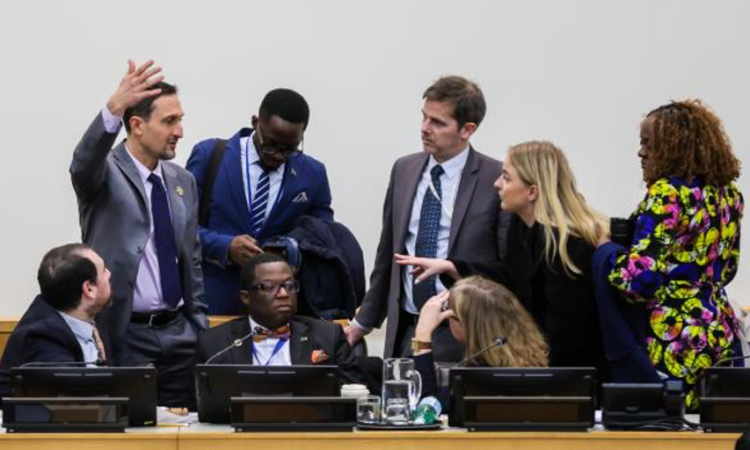
The global debt crisis has been a pressing concern for decades, with inequalities between developed and developing countries continuing to widen. As positions between lenders and borrowers harden, the need for reforming the global debt architecture has become increasingly urgent.
At the heart of the issue is the question of responsibility for maintaining sustainable debt levels. Donors argue that borrowing countries must take ownership of their debt, while borrowing countries counter that the global debt architecture is flawed, allowing donors to lend in ways that undermine debt sustainability and create a vicious debt cycle.
On the penultimate day of the third session of the Preparatory Committee (PrepCom3) for the fourth International Conference on Financing for Development (FfD4), discussions centered on reforming the global debt architecture. Delegates noted that debt servicing requirements have led to a perverse situation where net capital flows move from the Global South to the Global North, rather than the other way around.
Based on their discussions on the Zero Draft of the FfD4 Outcome Document, delegations debated several key proposals. These includes:
Establishing an intergovernmental process to address gaps in the debt architecture, exploring options for debt sustainability through a multilateral sovereign debt mechanism, and
Creat a global debt authority to give developing countries a greater voice in decision-making.
Delegates also supported proposals to incorporate climate risks into debt restructuring and debt cancellation considerations. Additionally, they discussed solutions related to global financial governance, financial regulation, and macroeconomic coordination.
A key issue that emerged throughout the day was the need to review credit rating methodologies. Developing country representatives argued that these methodologies have severe negative implications for their ability to attract capital and seek debt restructuring.
In response to concerns about undermining the credibility of credit rating agencies, a delegation pointed out existing methodologies that exacerbate inequalities and called for FfD4 to adopt a framework similar to European Union rules governing credit rating agencies.
The first reading of the Zero Draft is set to conclude on Friday February 14, 2025
By Kofi Don-Agor, New York







